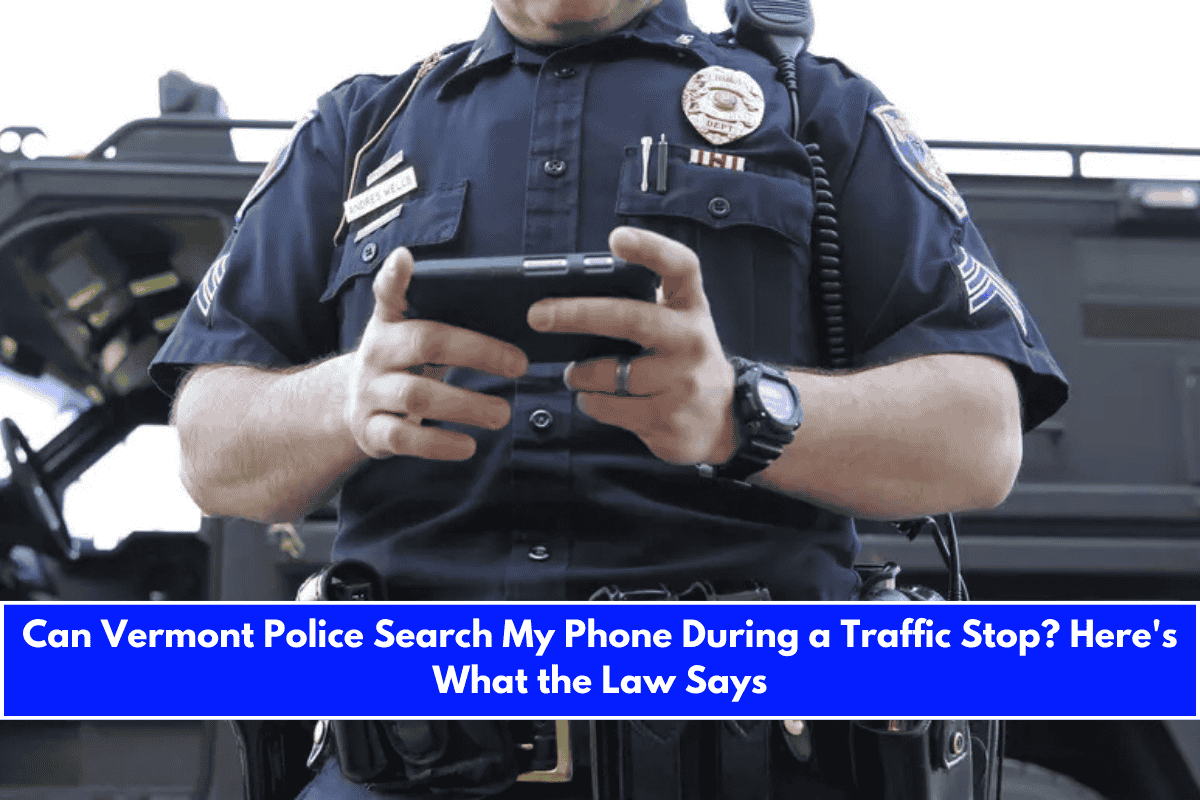The legality of police searching a phone during a traffic stop in Vermont hinges on constitutional protections and specific circumstances. Here’s an overview of what Vermont law says about this issue in 2025.
General Rule: Warrant Required
Under both Vermont law and U.S. Supreme Court precedent, police cannot search your phone during a traffic stop without a warrant. The Fourth Amendment to the U.S. Constitution protects individuals from unreasonable searches and seizures, meaning law enforcement must have probable cause and judicial approval to access the contents of your phone.
The landmark Supreme Court case Riley v. California (2014) reinforced this protection, ruling that cell phones contain vast amounts of personal data and are categorically different from other items that might be searched incident to an arrest.
Exceptions to the Warrant Requirement
While police generally need a warrant, there are exceptions that may apply:
- Consent: If you voluntarily allow officers to search your phone, they do not need a warrant. However, you are not obligated to provide consent.
- Exigent Circumstances: Police can search without a warrant if they believe immediate action is necessary to prevent harm, destruction of evidence, or escape. For example, if officers suspect evidence related to a crime might be deleted from the phone.
- Search Incident to Arrest: If you are arrested during the traffic stop, police may search areas within your immediate control for safety or evidence. However, Vermont law imposes strict limitations on such searches, especially when it comes to electronic devices.
Proposed Legislation
There have been attempts in Vermont to expand police powers regarding phone searches during traffic stops. For example, proposed bills have sought to allow warrantless searches of phones to enforce distracted driving laws.
These proposals have faced significant backlash from civil liberties advocates who argue they infringe on privacy rights. As of now, such legislation has not been enacted.
Recent Court Decisions
The Vermont Supreme Court has ruled that obtaining real-time cell site location information (CSLI) constitutes a search requiring a warrant under the state Constitution. This reinforces the expectation of privacy for electronic devices and suggests courts remain cautious about expanding warrantless search powers.
What Should You Do During a Traffic Stop?
If an officer requests access to your phone during a traffic stop:
- Know Your Rights: You have the right to refuse consent for a search.
- Remain Calm: Politely decline if you do not wish to allow access.
- Ask for Legal Justification: If officers insist on searching your phone, request clarification on whether they have a warrant or are acting under an exception.
Sources:
- https://www.vermontpublic.org/vpr-news/2016-01-11/proposed-bill-would-allow-warrantless-cell-phone-searches
- https://www.criminallegalnews.org/news/2023/apr/15/vermont-supreme-court-announces-pinging-cellphone-obtain-real-time-csli-constitutes-search-requiring-warrant-or-recognized-exception/
- https://www.scworld.com/news/vermont-bill-would-allow-police-to-seize-cell-phones-without-warrant
- https://www.govtech.com/public-safety/can-police-search-your-phone-during-a-traffic-stop
- https://www.acluvt.org/en/know-your-rights-police-interactions











Leave a Reply